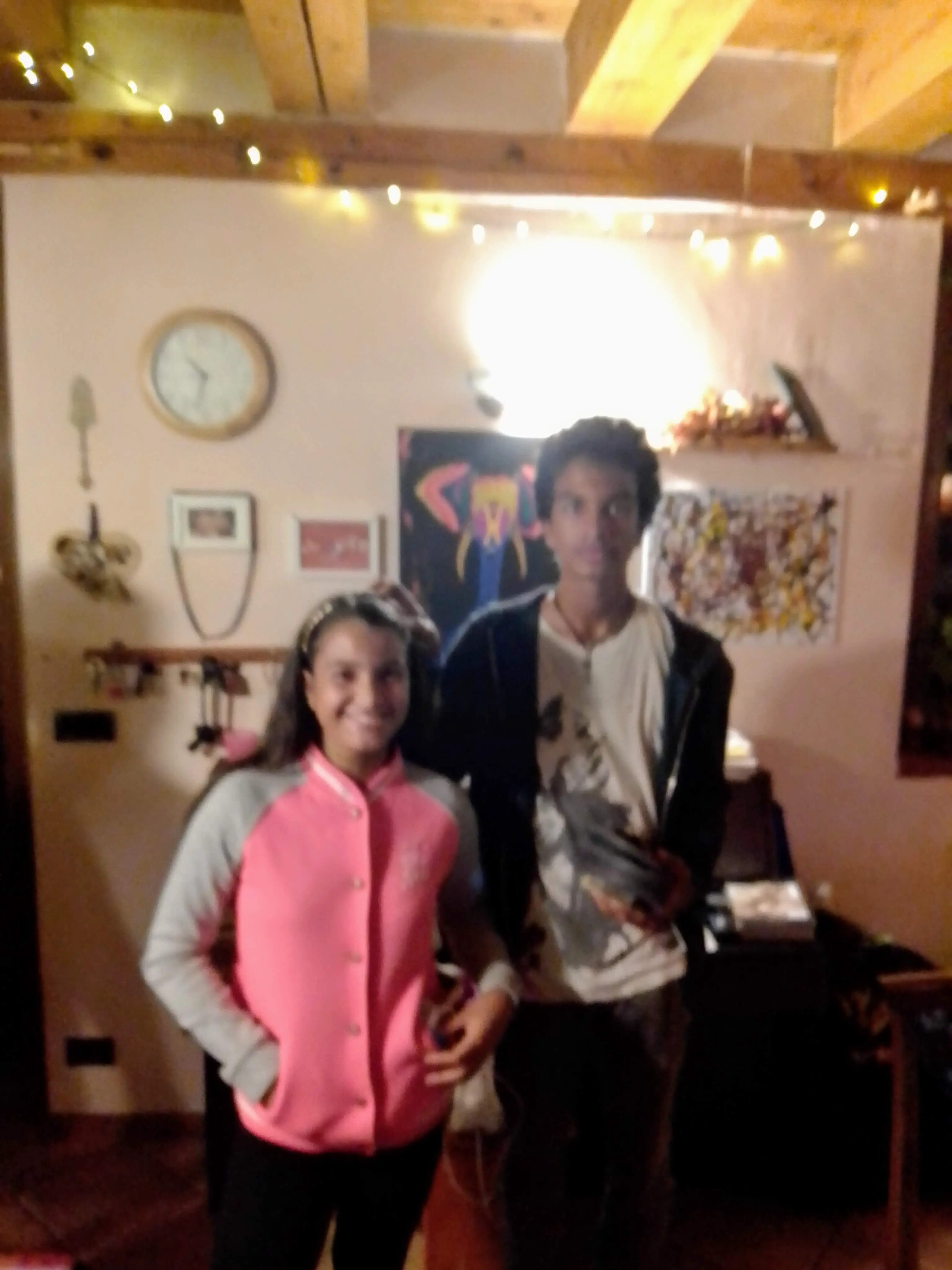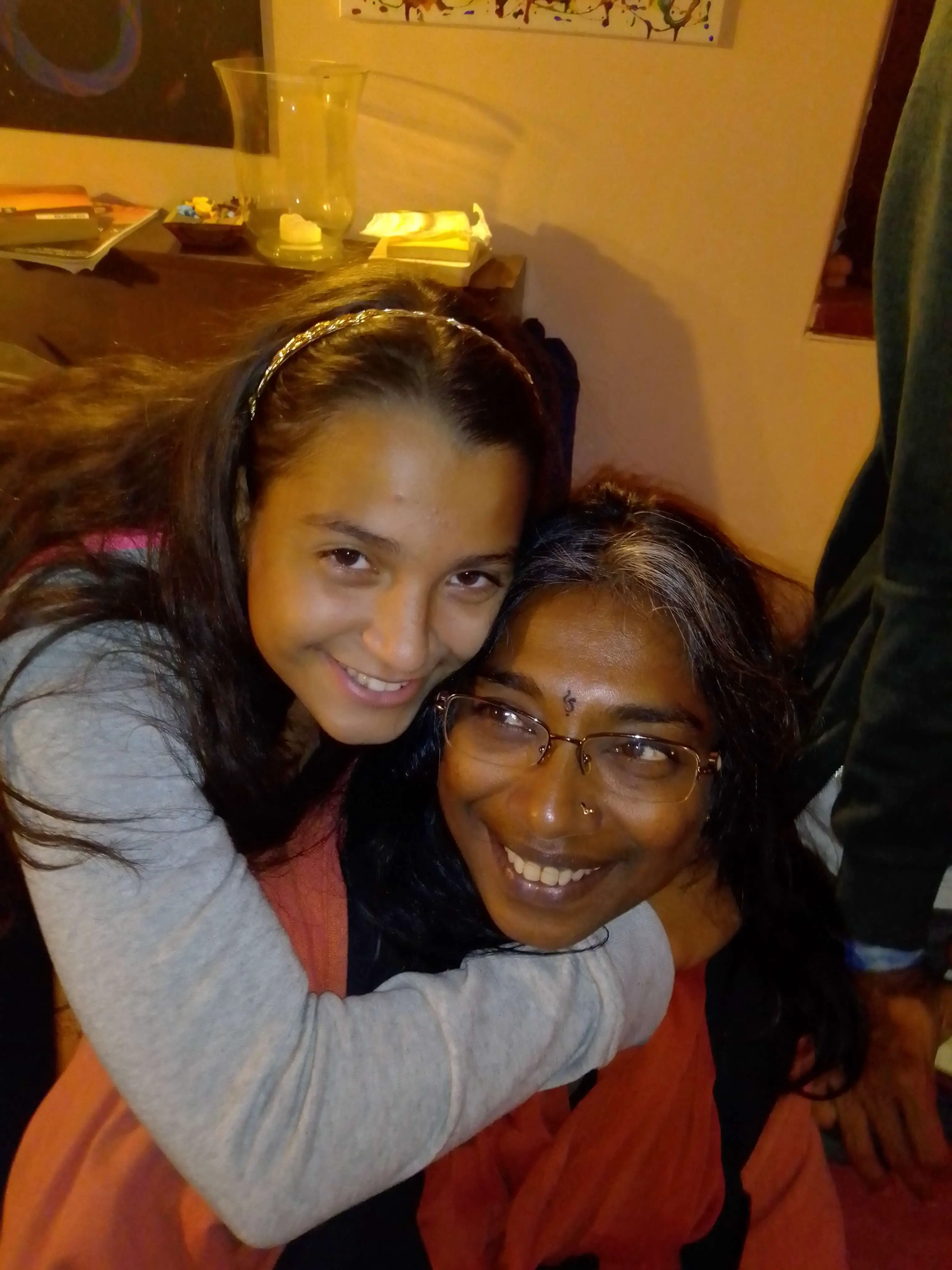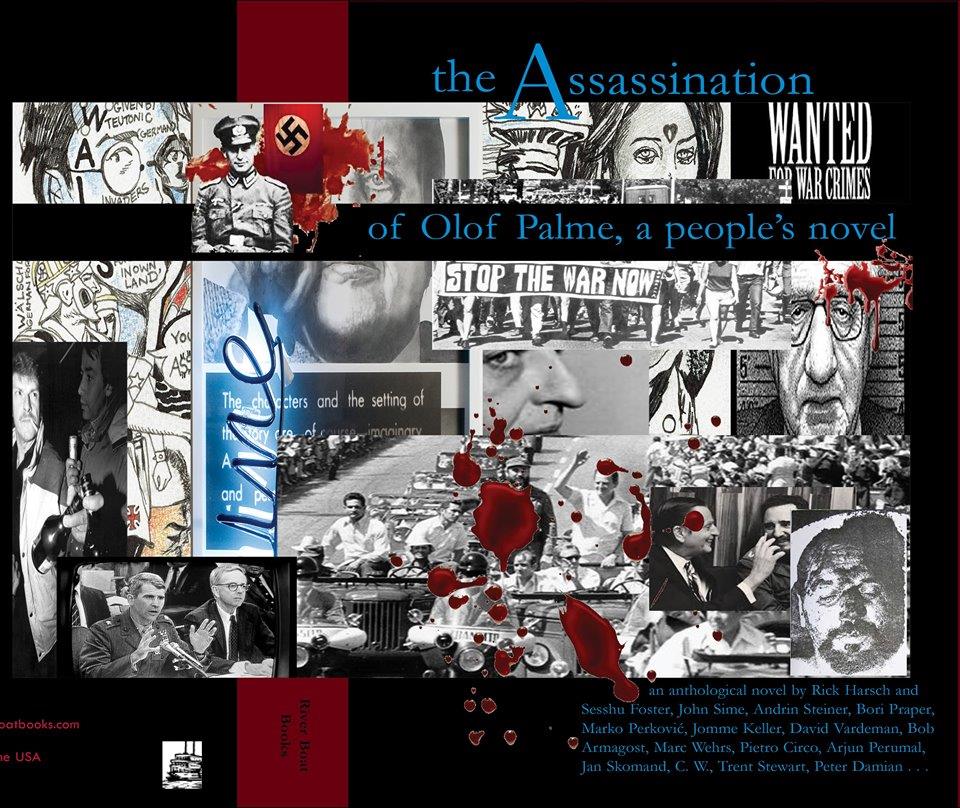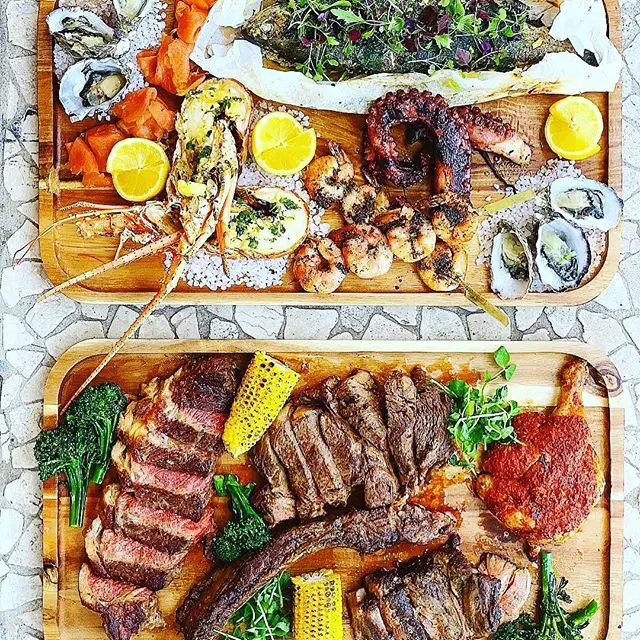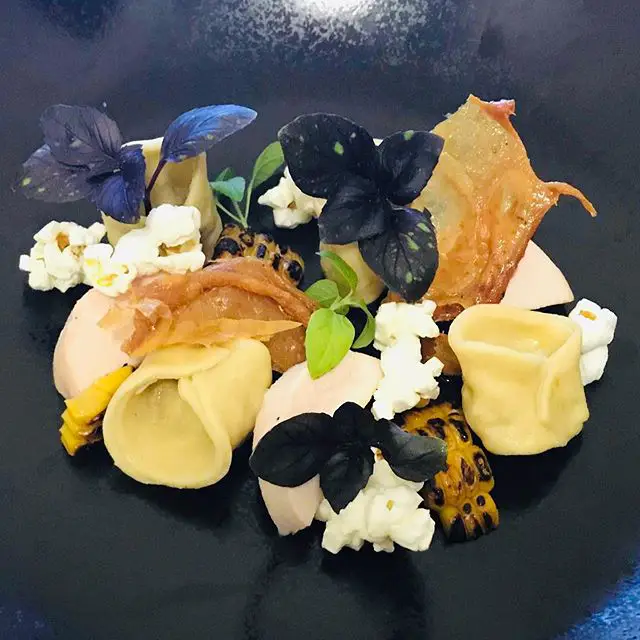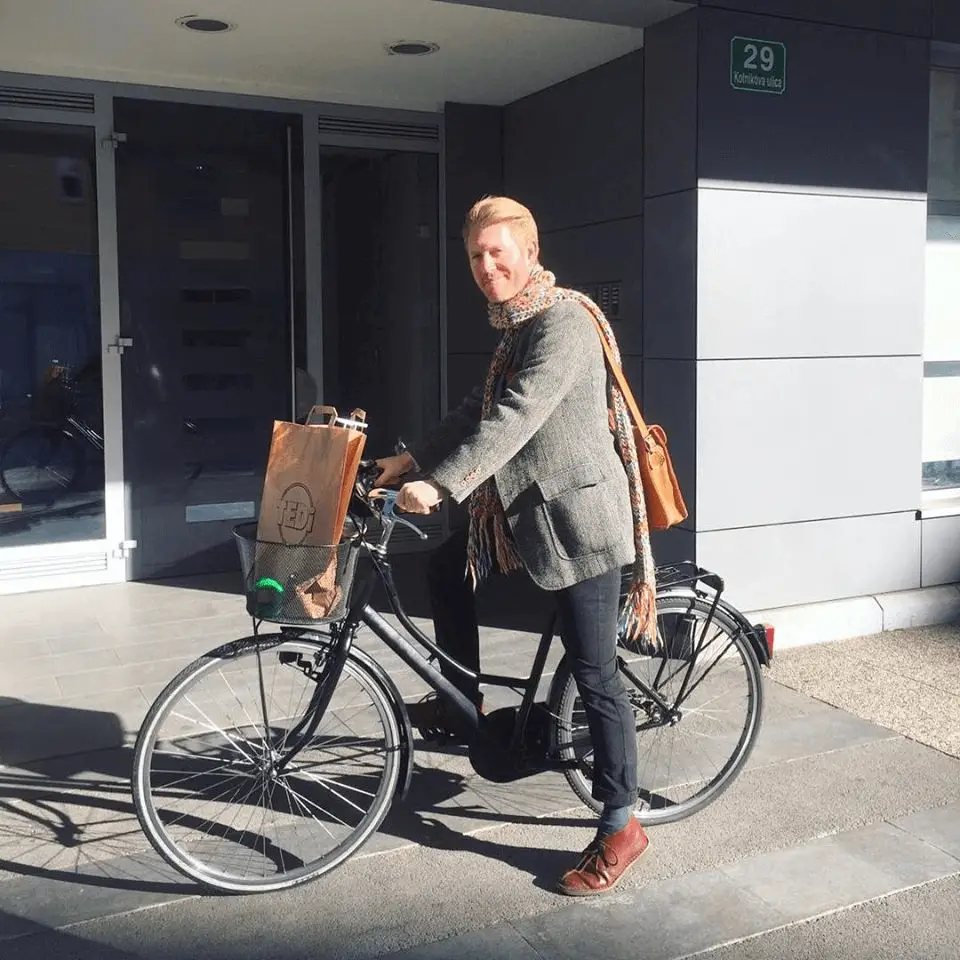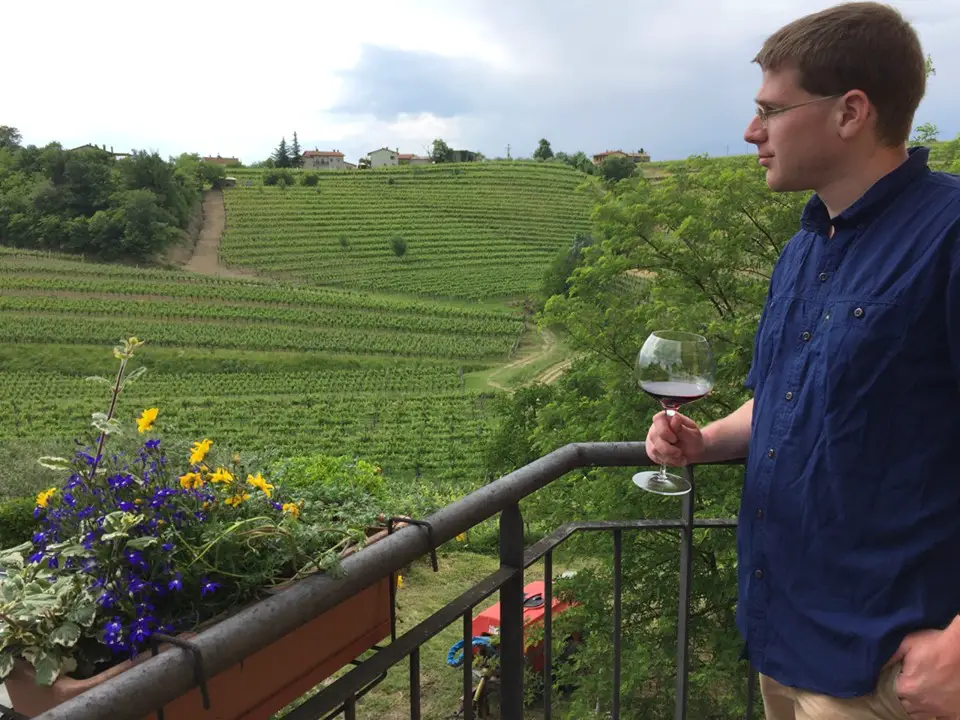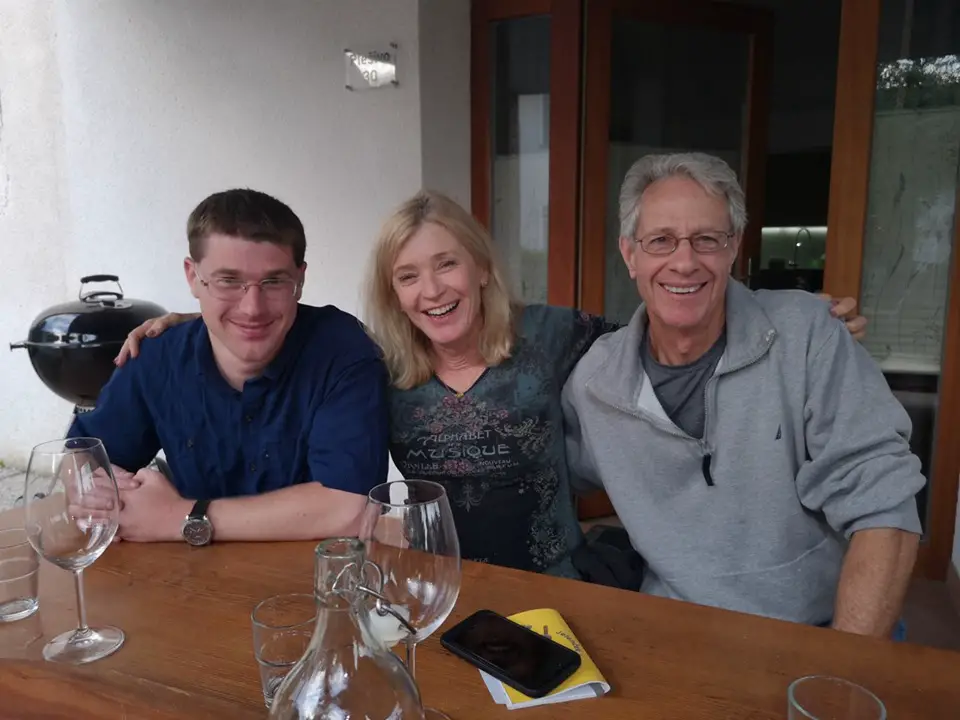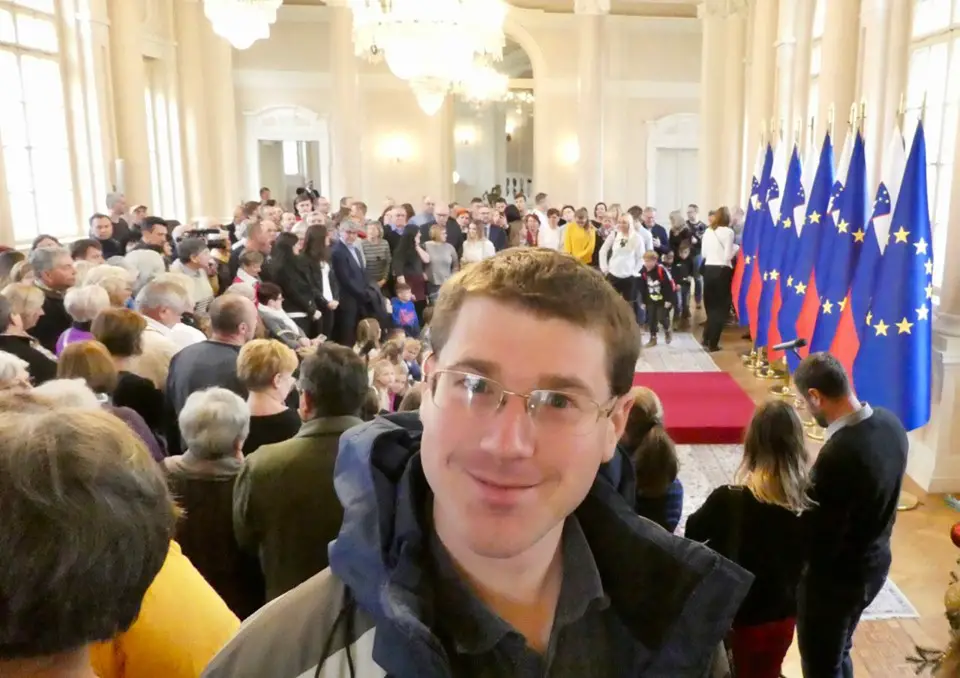All our stories on coronavirus are here, while those covering covid-19 and Croatia are here. We'll have an update at the end of the day, and if you want newsflashes then we'll post those on Facebook
We can’t have pictures of COVID-19 every day. So instead we’ll try and show the works of Slovenian artists. Today it’s Igor Andjelić. You can see more of his work here, and I recommend following him to get more joy in your life.
Contents
Number of coronavirus cases rises by 56 to 897, 16 deaths confirmed
High-school leaving exams delayed, other problems tackled
Ban on road cargo traffic at weekends, holidays lifted
Poll shows increase in those deeming latest measures too strict
STA, 2 April 2020 - The number of coronavirus cases in Slovenia rose by 56 in a day to stand at 897 by Wednesday midnight. So far 16 people have died from the disease. In the last 24 hours, 1,095 tests were conducted, the government said on Twitter.
A total of 112 patients were in hospitals around the country today, 29 of them in intensive care. Four persons were released from hospital in the last 24 hours and one person died.
So far, a total of 24,857 tests have been performed.
As many as 162 of those infected are elderly persons at care homes, the major virus hotspots in the country, their number increasing by 25 from Tuesday to Wednesday.
Data from the Labour Ministry also show that 32 staff at the facilities are infected, two more than the day before.
The largest outbreaks have been at the nursing homes at Šmarje pri Jelšah (NE), where at least 60 residents and 15 staff are infected according to data as of Wednesday, and Ljutomer (NE), where the infection spread from two to 33 people in just five days.
Concerns have been raised in Ljutomer for the safety of the town's 4,000 residents, with the care home there rejecting the allegations that it had put the residents, staff and the whole community at risk through inadequate response to the situation.
The first nursing home outbreak was in Metlika in the south but the situation there appears to have since stabilised because the infected were fast isolated. A total of 39 are infected there as of Wednesday.
Another hot spot is a nursing home in Horjul, a community just west of Ljubljana that saw its tally of cases rise by four to 24 on Wednesday, with 19 at the nursing home.
A further 11 are infected at the Bokalce unit of the old-age facility in the Ljubljana Vič Rudnik borough.
In order to prevent any further spread, the Labour Ministry sent instructions to all care homes today to set up three separate zones: one for healthy residents, one for residents suspected of being infected and one for the resident who have already tested positive.
In case of a Covid-19 infection among the residents at the facility, the staff must not move between healthy residents and those infected or suspected of being infected.
All care homes need to monitor the health of their staff and their families, which means all staff will need to measure their body temperature before coming in to work.
In case of a change in body temperature they will have to notify the person in charge, and will not be allowed to come back to work until the reason for the change in their health condition has been cleared.
In addition, old-age facilities need to form teams to handle residents in case of a Covid-19 outbreak, which should comprise the facility's official, GP, nurse, a public health specialist, a coordinator appointed by the minister and a senior nurse appointed by the Chamber of Nurses and Midwives.
However, the association of care homes is not happy with the proposed solutions, arguing that most homes could not set up such separate zones as proposed by the ministry, and even those who could could only do so when the number of infected was still were small.
The association said that nursing homes were not equipped or qualified to treat a large number of Covid-19 patients, and they oppose moving the healthy residents to other locations or home care.
They find it unacceptable that "part of the sick citizens should be treated at hospitals with all the necessary medical equipment and trained staff, while part of the ill elderly be cared at old-age facilities, which lack the required conditions". They believe thus would be a gross violation of human rights.
The municipalities with the biggest number of confirmed coronavirus cases are Ljubljana (182), followed by Šmarje pri Jelšah (112), Metlika (49) and Ljutomer (38).
Back to the contents
STA, 2 April 2020 - More than two weeks after schools in Slovenia switched to remote learning due to the Covid-19 epidemic, Education Minister Simona Kustec announced secondary school-leaving exams would not be able to be carried out as scheduled.
Although the National Exam Centre has been reluctant to announce any changes in the dates so as to encourage students to take remote learning seriously, Kustec told the public broadcaster late last night that given the epidemic situation it was clear that the first part of the matura exams could not be conducted as planned.
The date for essay writing will probably be moved from early May to 30 May, she said on the late news show Odmevi.
The ministry later said that the matura exams were scheduled to start on 30 May, with more specific data not yet available.
The National Exam Centre (RIC) has proposed the dates of individual exams to remain as scheduled, with the exception of the Slovenian essay writing being moved to 1 June.
RIC director Darko Zupanc said the plan was for the students to sit the English exam on 30 May as planned, along with all other dates, except the Slovenian language essay.
Only art school performance exams are to be moved to June. The announcement of the matura exams is to be moved on from 13 July be about two weeks.
Zupanc would not speculate what happened if the measures taken to contain the epidemic were extended into May or June, arguing that speculation at this stage would be bad for students. But he said that a reserve scenario solutions were ready.
The minister stressed that both experts and representatives of students agreed that matura should nevertheless be carried out. "All scenarios we are working on, focus on going through with the exams," the minister said.
It will not be possible to meet the original deadlines, but the school year for final graders will conclude on 22 May as usual. "The exact dates and deadlines (of the exams) will depend on the coronavirus situation," Kustec said.
According to her, this means that higher education enrolment deadlines will be adjusted to the changes. If matura exams are carried out in the spring and autumn as usually, no major changes will be necessary, but if no exams will be able to be carried out in the spring then the enrolment deadlines will need to be extended.
Kustec said the ministry was also preparing various scenarios if this happens. "We'll find a way that will be acceptable and suitable in this situation," she said.
The first enrolment deadline for higher education institutions has already been extended from 18 March to 9 April.
Kustec indicated last weekend that the dates for national exams for primary schools might also need to be changed.
She said that the ministry was also working on solutions for other problems students encounter. Students who will not be able to carry out the practical part of their courses will pass if they pass the theoretical part of the course.
Higher education institutions will adjust their requirements and students who will not be able to meet their obligations because of the epidemic will have their status automatically extended for another year.
In research, projects that were due on 31 December will be extended for another year without any cuts to their annual funding, she said.
Kindergartens, which remain closed during the epidemic and can therefore not charge parents for their services, will receive compensation for labour and other costs from the state. The same goes for private kindergartens, which will receive compensation amounting to 85% of what parents pay for a child, Kustec said.
Back to the contents
STA, 2 April 2020 - The Infrastructure Ministry has lifted the ban on road cargo traffic at weekends and holidays, with the measure being in force until the end of the coronavirus pandemic in Slovenia is declared.
The ban on cargo vehicles weighing above 7.5 tonnes was in force at weekends and holidays from 8am to 9pm. It would also apply on Friday, 10 April, between 2pm and 9pm because of the Easter holidays.
Announcing the lift on the ban, the ministry also said on Thursday that terminals at the port of Koper operated and other port services provided without disruption.
It added that the port operator Luka Koper had introduced all necessary measures to contain the spreading of new coronavirus and protect employees and other persons in the port area.
According to the ministry, rail freight transport runs smoothly at border crossing. Road cargo transport and transit transport through the port of Koper is also undisrupted despite certain restrictions in other countries and at border crossings.
Passenger transport has been meanwhile significantly reduced as the government also banned non-urgent travel between municipalities. The newspaper Primorske Novice reported today that traffic on Slovenian motorways had dropped by more than 60%.
Back to the contents
STA, 2 April 2020 - The latest public opinion survey by Valicon suggests an increasing number of Slovenians deem the latest government measures to contain the coronavirus epidemic too rigid, with the proportion of those who think so increasing to more than 20% from 7% a week ago. A vast majority also believe the situation is improving.
Moreover, the share of those saying that the measures are not strict enough dropped from 40% to 27%. Most respondents (53%) still believe that the measures are appropriate.
Meanwhile, overall optimism is accompanied by feelings of concern though. Some 70% are optimistic, saying that the situation is turning for the better, an increase compared to the previous survey (57%).
More than 40% think that extreme measures, including school closure and bans on movement and gatherings, will last for another two months, while some 20% believe that emergency circumstances will be over in a month.
On average, the respondents expect another 70 days of the current situation - until 11 June. A week ago, the expected deadline was 28 May.
Slovenians are still most concerned for their families (69%), although a bit less so compared to a poll conducted two weeks ago (81%).
Similarly, concern for their health decreased as well, dropping from 44% to 37%.
On the other hand, feelings of worry regarding the economic impact are on the rise, climbing from 43% to 51%.
Following the announcement of measures aimed at mitigating the fallout, the respondents expressed less concern over keeping their jobs, however in the past few days, such distress is again more prevalent, standing at almost 15%.
There has been detected a slight decrease in support for the anti-crisis umbrella bill. Some 40% of those polled find the stimulus package appropriate, while about 50% said the same when the measures were announced a week ago.
The boost is still generally welcomed, but the number of those who find the measures inadequate increased from 3% to more than 8%.
The latest survey also inquired about the changes experienced at a workplace due to the outbreak. The workload of some 20% has increased, while 37% have a similar amount of work as before. Almost 10% is working reduced hours, with some 20% being on furlough.
Moreover, 4% have lost their jobs due to the coronavirus crisis.
The survey was conducted between 31 March and 1 April among 482 respondents.
Back to the contents


